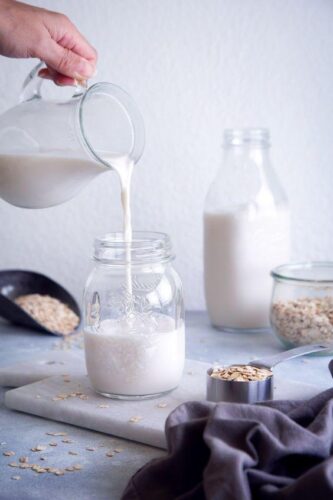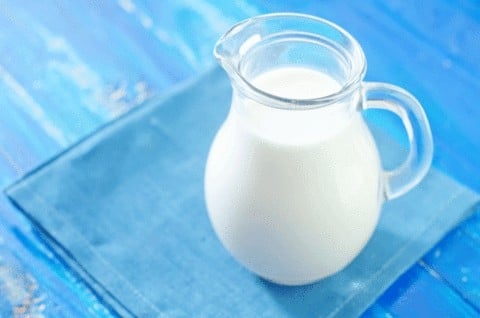
Drinking green tea straight, without milk or sugar, is widely regarded as the best way to maximize its health benefits. However, adding milk doesn’t completely negate the tea’s nutritional value. Different types of milk, such as fresh milk, powdered milk, soy milk, and almond milk, each offer unique benefits. While milk may reduce some of green tea’s advantages, it does not eliminate them entirely.


The Impact of Milk on Green Tea’s Nutrients
Green tea is rich in catechins, powerful antioxidants that support heart health, improve circulation, combat free radicals, slow aging, and reduce cancer risk. However, the protein casein in cow’s milk reacts with catechins, slightly diminishing their benefits. This reaction doesn’t create harmful compounds, but it does reduce the antioxidant activity of the catechins.

Healthier Alternatives to Cow’s Milk
For those who want to preserve green tea’s benefits while enjoying milk, plant-based options like soy milk, almond milk, or pistachio milk are excellent choices. Soy milk, for instance, contains lecithin instead of casein, allowing catechins to remain fully effective. These alternatives are also ideal for individuals with dairy allergies or lactose intolerance, offering a subtle flavor difference without compromising nutritional value.

Key Benefits of Green Tea with Milk
Even with milk, green tea retains tannins, gallic acid, and caffeine—key compounds that provide energy and support overall health. Thus, it’s perfectly fine to enjoy a green tea latte while still reaping some benefits of the tea.
Choosing the Right Milk for Green Tea
When preparing green tea-based beverages, the type of milk used matters. Fresh pasteurized milk is often the best choice for tea and coffee shops due to its high nutritional value, rich flavor, and availability. However, it requires refrigeration and must be consumed quickly after opening.
For greater convenience, UHT milk or powdered milk may be used. UHT milk offers a balance of convenience and quality, while powdered milk is lightweight, cost-effective, and has a long shelf life. However, some inexpensive powdered milk substitutes available in the market may compromise taste and quality, so it’s important to choose wisely.
Tips for Café Entrepreneurs
If you own a café, choosing the right milk for your matcha and tea beverages is crucial. Consider factors such as ease of storage, cost, and recipe compatibility. Stocking the right type of milk in appropriate quantities can minimize waste and reduce costs. For drinks requiring milk foam toppings, using the same milk type can further streamline operations and save money.
Conclusion
Drinking green tea with milk isn’t harmful to your health, but it’s important to choose milk thoughtfully to balance taste, convenience, and nutritional value. Whether you prefer cow’s milk or plant-based alternatives, there’s a way to enjoy your green tea latte without missing out on its benefits.
